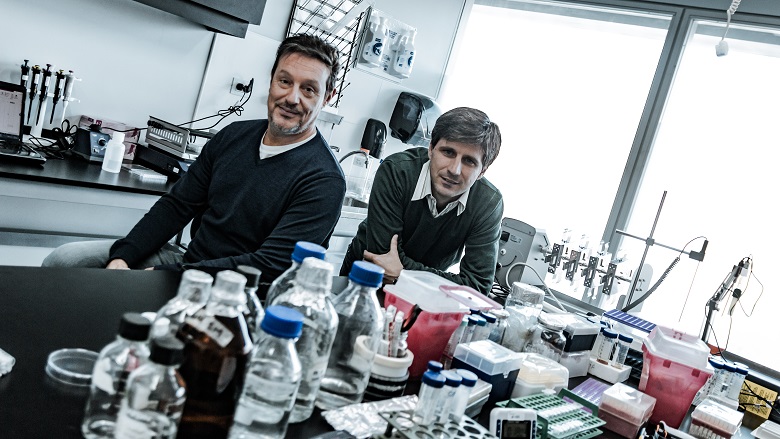The line appearing on the strip of paper does not indicate a pregnancy. Instead, a positive result in this test indicates the diagnosis of an infectious disease. The good news is that early detection means that treatment can begin right away.
The device, as easily deployed in an urban health center as in the middle of a field in the countryside, is capable of detecting pathologies such as Chagas disease, hemolytic-uremic syndrome, brucellosis, foot-and-mouth disease and dengue fever.
This novel solution is one of the products developed by Chemtest, a company created in 2015 by Andrés Ciocchini, Diego Comerci and Juan Ugalde, researchers at the Biotechnology Research Institute at San Martin National University (IIB-UNSaM), alongside two private sector partners from the pharmaceutical company Biochemic.
The new firm brought together biotechnology and nanotechnology to create this diagnostic method for human and animal diseases.
“Currently, most rapid diagnostic kits are imported, resulting in a high cost for the healthcare system and thus a limited reach. For this reason, this innovation represents a great opportunity to diagnose (and eventually treat) more people earlier — especially those more vulnerable and who live far from big healthcare centers — using a technology developed right here in Argentina,” said Cristian Quijada Torres, a World Bank specialist responsible for the Unleashing Productive Innovation Project, which finances initiatives such as this through Argentina’s Science, Technology and Productive Innovation Ministry (MINCYT).
Overcoming Hurdles
Bringing this new product to market took some time. The story begins in 2013, when the researchers took part in an applied research project led by a consortium of private companies and public research institutions, financed by the National Agency for Scientific and Technological Promotion (ANPCyT) with World Bank support.
“This type of program, carried out by the Ministry, seeks to strengthen the relationship between the scientific-technological sector and the private sector, with the goal of developing technology platforms that may result in products or services that improve the quality of life for the population,” said Lino Barañao, Argentina’s Minister of Science, Technology and Productive Innovation.”
That project developed a diagnostic device called “NanoPoc,” a portable and instantaneous infectious disease detector. This discovery was the starting point for Chemtest, which applied the innovation to other diagnostic platforms.
At that point, “one of the options was to bring this technology to market via a third party. Another was to set up a company, and develop and commercialize the products on our own” says Comerci, who alongside his colleagues chose the latter, in a partnership with veterinary firm Biochemic.
“The key to success was to organize a team that brought the best of each partner, both from the private sector as well as academia. This joint effort enabled us to overcome the challenges inherent to any startup: from business organization, to the financial aspects to product quality management” said Fabián Cairo, founding partner of Biochemic and Chemtest.
This is how Chemtest gained access to another ANPCyT program that seeks to promote the creation of tech-based companies.

